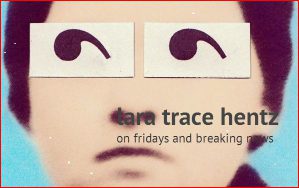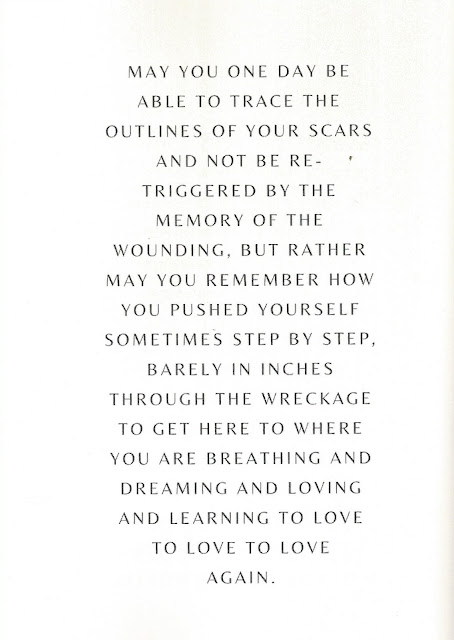An Interview with Trace Lara Hentz (journalist-author-blogger)
An Interview Of Trace Lara Hentz.
By Jerry Alatalo

 race Lara Hentz, editor of Lara Blog here on WordPress,
has graciously accepted an invitation to participate in the new
interview series we began recently. She offers an impressive, unique
voice and perspective which readers will appreciate, and adds valuable
perceptual contrast to the worldview spectrum compiled from the
excellent contributions by previous guest interviewees.
race Lara Hentz, editor of Lara Blog here on WordPress,
has graciously accepted an invitation to participate in the new
interview series we began recently. She offers an impressive, unique
voice and perspective which readers will appreciate, and adds valuable
perceptual contrast to the worldview spectrum compiled from the
excellent contributions by previous guest interviewees.Thank you Trace Lara Hentz for kindly sharing your insights, found in the following words.
**
An Interview with Trace Lara Hentz (journalist-author-blogger)
Question 1.) What was your primary motivation for entering the world of blogging on the worldwide web – the internet?
Thank you very much for this invitation.
In 2009, I joined the blogworld, first using Google Blogger. Experts say if you have a book, you must blog. Well good. That is great advice if you are a writer-author, but technically speaking, there are a million little things you won’t know about blogging until you have blogged awhile. Take sidebars and widgets, for example. That first blog: American Indian Adoptees [www.splitfeathers.blogspot.com] has hit ¾ million reads in 2017. And we’re in the top 100 adoption blogs. I’d say it’s because we are providing vital history, support and information to Native American and First Nations adoptees like myself. I found a niche and know my audience.
Soon after my book, I decided to try WordPress and I’m coming up on my 7th anniversary (January 2018) doing my Lara blog [www.laratracehentz.wordpress.com] for more serious writing. Time does fly. And I do blog experiments on blogger, just for fun. A few years ago I taught both blogger and WordPress at the local community college here in western Massachusetts, along with Social Media 101. They fit together like a glove. Sharing is important, as well as having good solid interesting information on your blog.
One thing I told my students is to blog/write once a week. More than that, you might get blogger-fatigue.
Question 2.) How would you describe yourself with regard to spirituality – what were some of the most memorable transforming points across the years (books, personal contacts, mystical experiences, etc.) in the developing of your current spiritual perspective?
In my early 20s, I embarked on a spiritual quest. Being adopted, for me, meant searching for people and answers. Over many years, I worked to reconnect and find relatives. Along the way, I’ve had meaningful experiences in ceremony, in the sweatlodge, doing purification before the Sundance in Rosebud, South Dakota in the 1990s. I studied with a Northern Cheyenne in Seattle prior to the ceremony, and he helped me with contacting the medicine man who was running it. You need permission to attend and you need to know what to expect, what to bring, etc. One of the most important things I learned: do not pray for yourself in the sweat. It’s not for me to say what I experienced, but it changed my life and improved my health. On that trip, I visited an Oglala Lakota family in Porcupine, SD, and soon became a relative (a member of their family). Sitting at Ellowyn’s kitchen table, I learned so many things, historic things, significant things, huge things, not found in any book.
The 90s were very big years for me. In Seattle where I was living, I met with a Face Reader who was Sikh. And my Kinesiologist-Herbalist was also a Sikh. Both men were healers, definitely, and both started healing the broken parts of me. I chose to do co-counseling (trauma therapy) for three years, which was transformative. The goal: tell your whole life story, in your own words, without holding back. It’s like an inner powder keg exploded. Since then I’ve studied herbal medicine and seek out holistic doctors for treatment. Even after all that personal growth, writing my memoir produced the biggest results in my mental health and outlook. The key is: “Know Thyself.”
The one book I recommend to everyone is John Fire Lame Deer Seeker of Visions. If you feel a need to understand Indian Country traditions, and the work of medicine men, particularly the Lakota Oyate (Nation), this is the book to read.
Question 3.) What is your greatest wish for readers as a consequence after reading and considering your writings?
My greatest wish is for those who read my blog is to be excited, and learn something new and unexpected. I share news from Indian Country, my perspective on being adopted, and I write and curate history and current events.
In case readers don’t know, it took me five long years to write my memoir, prior to my first blog. Good Grief! The one thing I had not fully realized with doing a memoir or biography, I needed to write in the first person and share my own story and the long search for my father. I was writing mostly Indian Country history in the book as a journalist. Then a literary agent read it and made recommendations. Writing friends told me similar. That started a major rewrite and a new process, while emotionally processing all of it. Writing can be a very healing thing, even writing on a blog, but it can also take you down a path you won’t expect. In those five years, I healed more than I ever dreamt possible.
Writing my first full-length book was synchronicity, very well-timed. After my memoir came out, I’ve done a four-part book series on the Lost Children of the Indian Adoption Projects, narratives from adoptees in North America and the 60s Scoop in Canada. And I have contributed to other books on the topic of adoption.
I hope that readers who visit my Lara blog will be glad to read about Indian Country. What is news-worthy to me might be news-worthy to you.
For those new to this blog world, as you blog, you will change and evolve. Remember, it’s your words and experience that people will want to read.
Question 4.) Can you offer any advice to people having a difficult time dealing with government and media lies, especially as it pertains to so many average citizens who hold erroneous perceptions on important events and situations around the Earth?
If 2017 feels like a beginning, 2018 will be even more so. Yup, hold onto your hat!
It is very apparent in 2017, this is a surreal time for many Americans. The Hopi and many tribes predicted this time would come. It is a very important time, in that we are waking up and seeing things in a whole new light, with some shock and outrage and fear thrown in. History (his-story) happens in cycles, so we need to learn world history, so we can see events happening today in a historical sense, and that way discern the truth from the lies. If we don’t discern, we are doomed to repeat until we do learn. I fully understand the constant news-cycle can be too much to handle… News might cause distress and bitter arguments among friends and family. That means we need to find new words, good words, better words, and to listen carefully.
I trained as a journalist in 1996 and took my first salaried job as an editor that year. Prior to that I freelanced and kept journals. Something I find most distressing today is so much history and world news is not taught in school, or included in history textbooks. There are huge chunks of history missing, mis-told, or told in a very biased, one-sided, colonized, misogynistic manner. Bloggers can change that, and I hope they will.
—

(BIO) Known for her exceptional print interviews with influential Native Americans such as Leonard Peltier, John Trudell and Floyd Red Crow Westerman, Trace Lara Hentz (who legally dropped the name DeMeyer in 2014) started intensive research on adoptees in 2004. Her memoir ONE SMALL SACRIFICE is an exposé on the systematic removal of American Indian children from their mothers, families and tribes for adoption into non-Indian families while she weaves in her own personal story. Her adoptee journey takes her around the country, finally meeting her birthfather in 1994 and learning about her mixed ancestry (Cherokee-Shawnee-Delaware-French Canadian.) Trace is former editor of tribal newspapers the Pequot Times and Ojibwe Akiing. She has contributed to adoption anthologies: Lost Daughters, Adoption Reunion in the Age of Social Media, and Adoptionland: From Orphans to Activists. In 2013, she was co-editor of the anthology Unraveling the Spreading Cloth of Time: Indigenous Thoughts Concerning the Universe with MariJo Moore. She is currently writing history with her cousin Dr. Charles Bland on one of their cousins Dr. Thomas Augustus Bland, editor of Council Fire, and a friend of Red Cloud and Sitting Bull.
***
Thank you again, Trace Lara Hentz. Peace.



Comments